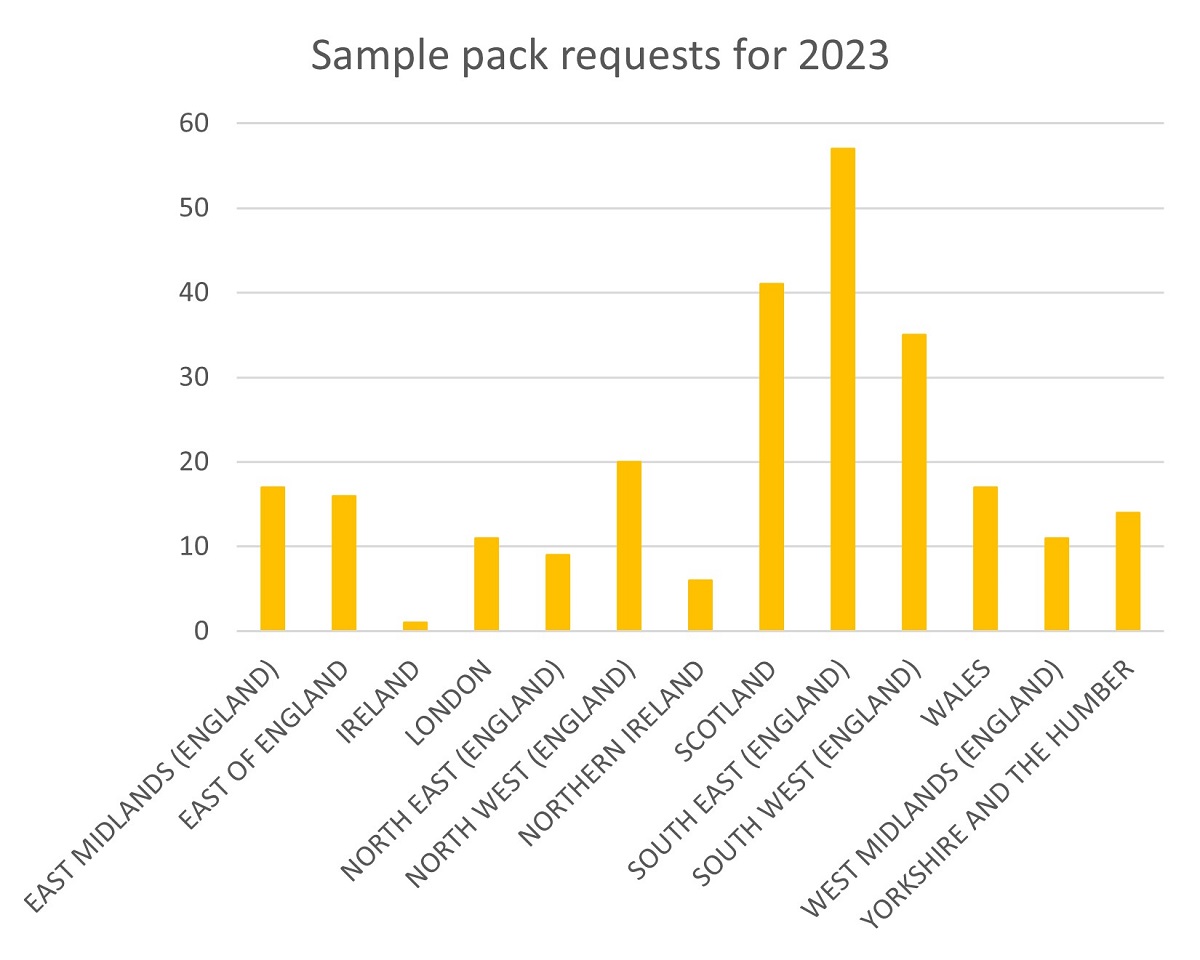Dear Beekeepers,
We hope you - and your bees - are well! I am currently buzzing (excuse the pun) because I did my first hive check of the year yesterday and it was so lovely to see the ladies again. I am also relieved because we moved our hives to a new location recently and the old one is currently knee-deep in water because of all this rain we've had!
I wanted to welcome our new subscribers and thank everyone who has already requested a sample pack for this year. We have so far received 255 sample pack requests from the following regions of the UK:

As mentioned in our previous newsletter, we are aiming to reduce the number of samples we will be processing in 2023. This is to manage the scheme's resources so we can keep the scheme running for longer. We will be sending out a maximum of 1,200 sample packs throughout the year with the expectation of receiving and analysing ~800 samples.
As you can see from the chart, the South East and South West of England are well-represented, as ever! Scotland is also doing well for pack requests. We are looking for more beekeepers to take part from the Midlands and from the North, if you can spread the word?
An update on 2022 samples:
- 1,478 samples total
- 1,380 samples measured for sugar/water content (unable to obtain readings from set honeys)
- 1,146 samples filtered for pollen grains (all honeys collected straight from the comb)
- 384 samples DNA extracted and PCR’d (= 4 DNA plates = 1 sequencing run)
In case you missed it last time, we have a YouTube video explaining more about the lab processes involved in pollen analysis from honey: Behind-the-scenes at NHMS.
The landcover data has been uploaded to the website but ahead of the status being changed, which will mean you receiving an email update, I wanted to explain that in the report you receive the final page will be blank. This is because the results of the pollen analysis are not yet available. For next year, we will look into changing the report so that is says "results pending" instead of empty sections that look as though analysis has been unsuccessful.
Thank you for supporting the scheme and we will keep you updated on our progress throughout the year.
Best wishes,
Jenny
On behalf of the National Honey Monitoring Scheme


